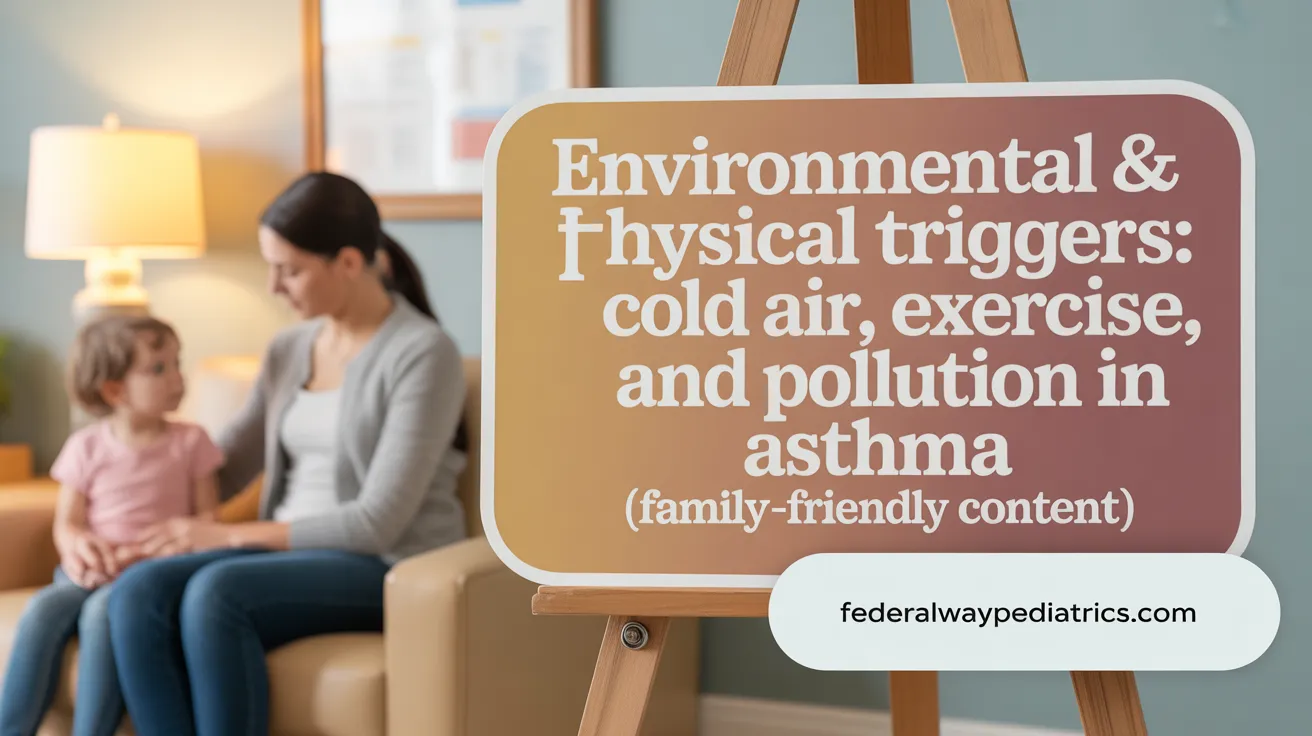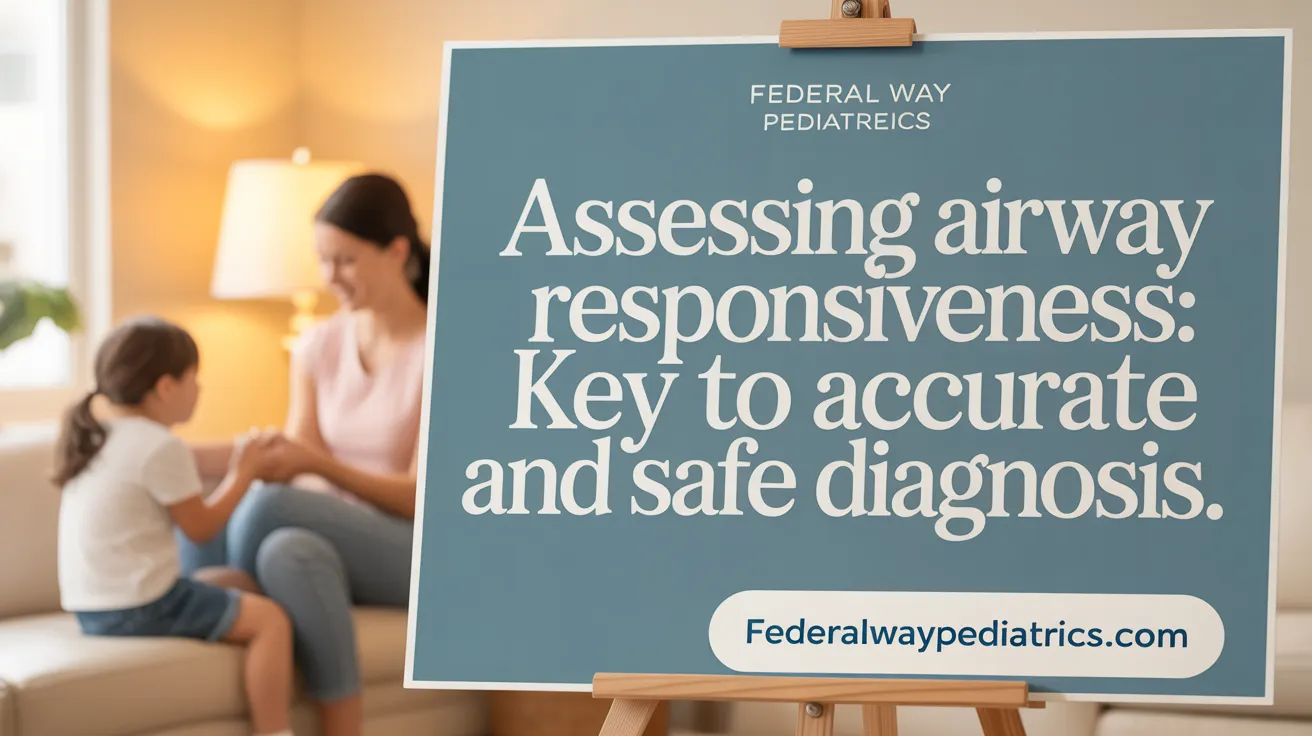Clearing the Confusion Between Asthma and Simple Coughs
Coughing is a common symptom experienced by many, but distinguishing whether it signals asthma or a simple cough from a cold or allergy is vital for appropriate treatment and health outcomes. This article explores the key factors that separate asthma-related coughs from common coughs, including symptoms, causes, diagnostic methods, treatments, and special considerations in children.
Recognizing the Symptoms of Asthma Compared to Simple Coughs

What are the symptoms that differentiate asthma-related cough from a simple cough?
Asthma-related cough typically presents as a long-lasting, dry, and persistent cough that tends to worsen with specific triggers like cold air, exercise, allergens, or during the night. Unlike coughs from colds or allergies, which often resolve within a week or two and may be accompanied by a fever, asthma coughs are more chronic, lasting over three weeks or recurring frequently.
In addition to the cough itself, asthma often includes other respiratory symptoms such as wheezing—a high-pitched whistling sound during breathing—chest tightness, and shortness of breath. These symptoms are especially prominent during flare-ups and can be triggered by environmental factors like pollen, dust, or respiratory infections.
Cough-variant asthma (CVA), a subtype where cough is the only symptom, may occur without wheezing but still responds well to asthma treatments such as inhaled corticosteroids.
On the other hand, simple coughs—commonly caused by colds, bacterial infections, or allergies—are usually accompanied by systemic signs like fever, sore throat, and mucus production. These coughs tend to resolve after the illness passes and do not typically involve bronchial inflammation or airway constriction.
In summary, the primary differences are in duration, associated symptoms, and triggers. Chronic coughs with additional respiratory symptoms suggest asthma, whereas short-lived coughs with fever and mucus are indicative of infections or allergies.
Common Causes and Triggers: Asthma Versus Simple Coughs

What are the common causes and triggers of asthma compared to simple coughs?
Asthma is frequently initiated by specific allergens and environmental irritants. Common triggers include outdoor allergens like pollen, and indoor ones such as dust mites, pet dander, and mold. Respiratory infections, including cold and flu viruses, often provoke asthma symptoms as well. Additionally, irritants like tobacco smoke, air pollution, and strong odors can cause airway inflammation in susceptible individuals.
Environmental factors and physical conditions also influence asthma. Cold air, vigorous exercise, stress, and sudden weather changes can lead to airway constriction, aggravating symptoms. These triggers tend to provoke recurrent episodes in asthma patients and may result in persistent, dry coughs often accompanied by wheezing, chest tightness, and breathlessness.
In contrast, simple or acute coughs are generally caused by viral infections, allergies, or irritant exposure. The common cold or flu, for instance, often results in a cough that resolves after the illness subsides. These coughs are typically short-term, do not involve ongoing airway inflammation, and are often accompanied by fever, congestion, or other illness symptoms.
While both asthma and non-asthmatic coughs can be triggered by environmental irritants, the key difference lies in the duration and severity. Asthma involves a persistent, chronic inflammation of the airways, which leads to recurrent symptoms and a pattern of episodes. Conversely, simple coughs tend to be transient, resolving with the removal of the causative infection or irritant.
| Causes and Triggers | Asthma | Simple Cough | Additional Details |
|---|---|---|---|
| Allergens | Yes | No | Pollen, dust, pet dander |
| Respiratory infections | Yes | Yes | Cold, flu viruses |
| Irritants (smoke, pollution) | Yes | Yes | Cigarette smoke, pollution |
| Physical triggers (cold air, exercise) | Yes | No | Cold weather, physical exertion |
| Duration | Chronic, recurrent | Short-term, illness-related | Persistent cough in asthma versus transient illness cough |
Understanding these differences helps in distinguishing asthma from simple coughs and highlights the importance of identifying specific triggers for effective management.
Cough-Variant Asthma: The Silent Asthma Manifestation
What is cough-variant asthma and how is it different from common coughs?
Cough-variant asthma (CVA) is a form of asthma where the main symptom is a persistent dry cough that lasts for weeks or even months. Unlike typical asthma, CVA doesn't usually involve the classic signals such as wheezing, chest tightness, or difficulty breathing initially. Instead, individuals mainly experience a dry, non-productive cough that especially worsens at night, after exercise, or when exposed to triggers.
This condition arises from airway inflammation and hypersensitivity, similar to classic asthma. The airways become inflamed and overly responsive to various triggers including cold air, allergens like pollen or dust, viral infections, and environmental irritants. Over time, if left untreated, CVA can develop into more traditional asthma with additional symptoms.
Diagnosis of CVA involves specialized tests such as spirometry to assess airflow and bronchoprovocation tests to see how reactive the airways are. Response to inhaled corticosteroids, which reduce airway inflammation, can also help confirm the diagnosis. Proper treatment involves inhaled medications like corticosteroids and bronchodilators, avoiding triggers, and regular monitoring.
If unfocused treatment persists, around 30-40% of CVA cases progress into classic asthma, demonstrating additional symptoms like wheezing and shortness of breath. Recognizing and managing CVA promptly can prevent this progression and improve quality of life.
Diagnostic Approaches to Distinguish Asthma from Simple Coughs

How are doctors able to tell if a cough is caused by asthma or just a simple respiratory infection?
The process of diagnosing whether a cough is due to asthma involves a combination of evaluating symptoms and performing specific tests. For asthma, clinicians often start with a thorough clinical assessment, asking about symptoms like wheezing, chest tightness, and whether the cough worsens at night or after exercise. These patterns provide initial clues.
To confirm asthma, doctors typically use lung function tests such as spirometry. This test measures how much air you can breathe out and how quickly, helping to identify airway narrowing. A key step is administering a bronchodilator medication during the test—if your lung function improves significantly afterward, it suggests reversible airway constriction characteristic of asthma.
In addition, bronchial provocation tests, like the methacholine challenge, can be employed. These tests involve inhaling small amounts of a substance that triggers airway narrowing in sensitive individuals. A positive response indicates airway hyperreactivity, a hallmark of asthma.
Further diagnostic tools include chest X-rays, mainly to rule out other causes such as infections or structural abnormalities. Medical professionals also measure markers of airway inflammation, such as fractional exhaled nitric oxide (FeNO), or analyze sputum to look for eosinophils, which are common in allergic asthma.
Allergy testing is another important component. Identifying allergies to pollen, dust, or pet dander can support an asthma diagnosis, particularly cough-variant asthma.
In contrast, simple coughs often have an infectious origin, like the flu or a cold, and tend to resolve on their own within days to weeks. These do not usually require extensive testing unless symptoms persist or worsen.
Cough-variant asthma, which primarily presents as a dry cough with little or no wheezing, can be distinguished by how it responds to asthma medications. Improvement with inhaled corticosteroids and bronchodilators, along with positive airway responsiveness tests, help differentiate it from other causes.
| Diagnostic Method | Purpose | Typical Outcomes |
|---|---|---|
| Spirometry | Detects airway obstruction and reversibility | Obstruction with significant improvement after bronchodilators |
| Bronchial provocation (methacholine challenge) | Confirms airway hyperreactivity | Increased airway reactivity indicates asthma |
| Allergy testing | Identifies allergens contributing to symptoms | Allergic responses support allergy-related asthma diagnosis |
| Airway inflammation markers (FeNO, sputum eosinophils) | Detects airway inflammation | Elevated levels suggest eosinophilic airway inflammation |
| Clinical assessment | Evaluates symptoms pattern and triggers | Patterns such as nocturnal cough and response to triggers support diagnosis |
These tests and assessments ensure that doctors can accurately distinguish asthma from simple coughs, especially when coughs are chronic or recurrent. Proper diagnosis is crucial for effective treatment, which often includes inhalers and lifestyle adjustments to control triggers.
Health Implications and When to Seek Medical Care
What are the potential health implications of asthma and when should medical attention be sought for respiratory symptoms?
Asthma can significantly impact lung health if not properly managed. Chronic airway inflammation can lead to persistent symptoms such as coughing, wheezing, chest tightness, and shortness of breath. Over time, ongoing inflammation may cause permanent changes in the airway structure, known as remodeling, which can worsen breathing difficulties.
Untreated or poorly controlled asthma increases the risk of severe attacks that require urgent medical intervention. These attacks can be life-threatening if not addressed promptly. Regular monitoring and medication adherence are vital to controlling symptoms and preventing complications.
Recognizing when to seek medical care is crucial. Worsening symptoms, such as more frequent or severe coughing, increased wheezing, or chest tightness, indicate the need for medical evaluation. If medications like bronchodilators become less effective in relief, it is a sign that management may need adjustment.
Emergency signs include extreme shortness of breath, inability to speak in full sentences, bluish lips or nails, and a feeling of suffocation. These symptoms require immediate medical attention to prevent escalation into respiratory failure.
Effective management involving trigger avoidance, regular medication use, and lung function monitoring can help prevent serious health consequences. When symptoms are escalating, prompt medical intervention ensures safety and optimal control.
| Aspect | Description | Critical Indicators |
|---|---|---|
| Potential health consequences | Lung function decline, airway remodeling, frequent exacerbations | Persistent cough, wheezing, difficulty speaking |
| When to seek medical help | Symptoms worsening despite medication, emergency signs | Severe shortness of breath, cyanosis, fatigue |
| Emergency signs | Blue lips/nails, inability to speak, life-threatening respiratory distress | Immediate medical attention required |
Being vigilant about these signs and maintaining open communication with healthcare providers can help manage asthma effectively and prevent serious health consequences.
Treatment Strategies: Managing Asthma Versus Simple Coughs
How do treatment options for asthma differ from those for simple coughs?
Treatments for asthma mainly target controlling airway inflammation and preventing ongoing symptoms. Patients are often prescribed controller medications like inhaled corticosteroids, which reduce swelling and mucus production in the airways. Quick-relief inhalers, such as bronchodilators, are used during flare-ups to quickly open narrowed airways. In some cases, additional medications like leukotriene receptor antagonists or biologic therapies may be used for better control. Avoiding triggers—such as pollen, dust mites, tobacco smoke, and cold air—is also crucial.
In comparison, treatments for a simple cough are usually aimed at symptom relief rather than long-term management. Common remedies include cough suppressants, hydration, and sometimes medications to treat underlying causes like infections or allergies. For example, viral coughs typically resolve on their own within a week or two, so treatment focuses on soothing symptoms. When a cough is associated with conditions like cold or flu, addressing the infection often alleviates the cough.
Special forms like cough-variant asthma, where the predominant symptom is a chronic dry cough without other typical asthma signs, require similar management strategies to regular asthma. This includes using reliever inhalers during episodes and preventer inhalers daily to reduce airway sensitivity.
Overall, intervention for asthma emphasizes long-term control to prevent attacks, while simple cough treatments aim to manage symptoms and treat underlying causes as they arise.
Navigating Coughs: The Importance of Accurate Identification and Appropriate Care
Distinguishing between an asthma-related cough and a simple cough can sometimes be challenging but is essential for effective management and improved quality of life. Recognizing the persistent, trigger-sensitive nature of asthma coughs alongside associated respiratory symptoms ensures timely diagnostic evaluation and initiation of proper treatments. Understanding cough-variant asthma highlights the need for medical attention even when classic asthma symptoms are absent. Awareness of potential complications reinforces the importance of seeking prompt care when symptoms worsen. By differentiating asthma from common respiratory conditions through careful symptom assessment, diagnostic techniques, and targeted treatments, individuals and caregivers can better control symptoms, reduce exacerbations, and maintain respiratory health.
